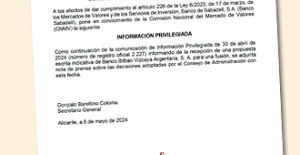According to his son, he would be “senile”; for his daughter, he is weak but conscious. At the center of the affair which is tearing Alain Delon's family apart, so-called "cognitive tests" were mentioned which the actor allegedly failed, showing difficulties in discernment. But how are neurocognitive disorders (NCD) detected? Le Figaro takes stock.
Public Health France defines NCDs (including Alzheimer's disease) as the most common neurodegenerative diseases, leading to an increasing loss of cognitive functions and behavioral changes leading to a loss of patient autonomy. If no curative treatment is available, personalized care is possible. There were 1.2 million people affected by TNC in France in 2016 and it is estimated that there will be 1,750,000 in 2030. Detecting TNC using appropriate tests is therefore a challenge given the aging of the population. How do they take place? What do they say about the patient's condition? Are they reliable?
“These tests make it possible to direct the diagnosis towards causes which are not necessarily linked to a neuroprogressive disease, such as memory loss linked to depression or difficulty concentrating linked to alcohol consumption,” explains Professor Marc Verny. , specialist in geriatrics and neurology at the Pitié Salpêtrière hospital (Paris). The interpretation of the tests cannot therefore be done without taking into account various parameters such as the age and socio-educational level of the patient, as well as their medical history. Cognitive tests may be accompanied by other tests to assess the degree of intensity of the disorder (from mild to strong) and the patient's level of dependence. The High Authority for Health (HAS) warns of the fact that “in general medicine, one of the difficulties of the diagnostic approach is to rule out depression in the face of persistent cognitive decline objectively demonstrated by the clinic or by screening tests”. When additional disorders are present, such as psychiatric disorders (depression, bipolarity, schizophrenia), a detailed analysis is offered thanks to interviews with those close to them, and additional examinations such as an MRI or a lumbar puncture allow the detection of specific markers of cognitive diseases.
The significant break with the patient's past functioning and personality is a central element in evoking a possible diagnosis of TNC, according to the HAS. Trying to evaluate this break at different levels (learning, language, decision-making, problem solving, attention, etc.) with tests is not easy. The HAS lists 7 different tests, American, Canadian, Australian, British and French.
The Dubois 5-word test consists of submitting to the patient a list of 5 words that he must associate with a category (flower, clothing, etc.); once the sheet is turned over, he will have to give the words again immediately, then again after a few distracting tests. “The Dubois 5-word test only evaluates memory,” explains Professor Verny. It has the advantage of making it possible to interpret the type of memory disorder to differentiate, for example, a patient suffering from depression from one suffering from early Alzheimer's. But this test does not assess other cognitive sectors such as executive functions” (ability to act in an organized manner to achieve objectives, editor’s note).
The “General Practitioner-Cognition (GP-Cog)” test is the most used in general medicine, because it is short and allows the patient's entourage to be consulted on the severity of symptoms and their temporal evolution. But it is not very specific. Professor Marc Verny indicates that we can also propose the use of several tests to explore several cognitive fields in a reduced examination time.
At the start of the year, the federation of memory centers will propose recommendations for the early diagnosis of TNC, with indications on the tests available and possibly combinations of tests allowing the different fields of cognitive loss to be explored. Some tests match the patient's level to that expected at a certain age, to better analyze the degree of TNC.
In France, unlike other countries, no screening test is recommended in primary care (at the general practitioner). When a patient complains to his doctor about memory loss, cognitive problems, lasting change in behavior or activity, a discussion to collect personal information (medication history, lifestyle, profession, etc.) allows to hypothesize a lasting cognitive decline. The doctor's impression can be compared with standardized tests called “identification tests exploring the cognitive, functional or even behavioral deficit”. The doctor chooses the test that seems most appropriate. However, Professor Marc Verny points to a lack of training for practitioners. “These tests are used too little by general practitioners, but we are seeing a generational effect with young doctors who are more aware of the use of these tests.” The HAS also indicates that TNCs “are sometimes associated with diagnostic wandering and a delay in diagnosis”, despite a rich literature on TNCs and detection methods. Once the disorder is suspected or formally identified, the precise diagnosis of its cause must be made by a hospital or private doctor specializing in TNC with “the support of a certified memory consultation”.
These tests must be taken under standardized conditions, outside any phase of acute pathology. However, it is possible that the patient is not willing to discuss with his doctor when the appointment has been imposed on him by his family. The doctor then takes this element into account. Some of the widely used tests (MMS, MoCA) last 10 to 15 minutes when on average a consultation in general medicine lasts 16 minutes (Dress, 2002) which leaves little time to take the test. Professor Marc Verny indicates that in the near future “advanced practice nurses will be able to take these tests, which is part of their professional skills”. The specialist suggests that a general practitioner collects the cognitive complaint then that the nurse carries out the assessment. The synthesis would be carried out in collaboration between the two health professionals.
Also read What is the MoCA, this cognitive test that Donald Trump took?
This etiological diagnosis (on the causes of the disorders) makes it possible to optimize the care plan. The doctor then explains the multi-professional, medical and paramedical, medico-social and social care adapted to the patient. The HAS specifies that “the commitment of those close to them and the patient in the care project is necessary, supported and encouraged”.
The HAS specifies that with age “it is common to encounter some difficulties in quickly finding the name of a person, a place, a date; then find them a few minutes later. It is not abnormal to write down everyday things so as not to forget them. Memory loss is worrying from the moment it disrupts the person's daily life or feelings, such as getting lost on a known route, forgetting the name of a loved one or doing "stupid things" like leaving the fire burning in the house. gas stove. The HAS distinguishes major TNCs, when the individual has an impact on their autonomy and becomes incapable of carrying out certain activities of daily life alone (managing their budget, treatments, shopping, etc.) from mild TNCs where the patient preserves the ability to perform activities of daily living alone.

 Sabadell rejects the merger with BBVA and will fight to remain alone
Sabadell rejects the merger with BBVA and will fight to remain alone In Germany, the far left wants to cap the price of “doner kebabs”
In Germany, the far left wants to cap the price of “doner kebabs” Israel-Hamas war: Gaza between hope of truce and fear of Israeli offensive in the South
Israel-Hamas war: Gaza between hope of truce and fear of Israeli offensive in the South “Mom, Dad, please don’t die”: in the United States, a nine-year-old child saves the lives of his parents injured in a tornado
“Mom, Dad, please don’t die”: in the United States, a nine-year-old child saves the lives of his parents injured in a tornado The presence of blood in the urine, a warning sign of bladder cancer
The presence of blood in the urine, a warning sign of bladder cancer A baby whose mother smoked during pregnancy will age more quickly
A baby whose mother smoked during pregnancy will age more quickly The euro zone economy grows in April at its best pace in almost a year but inflationary pressure increases
The euro zone economy grows in April at its best pace in almost a year but inflationary pressure increases Children born thanks to PMA do not have more cancers than others
Children born thanks to PMA do not have more cancers than others “House of the Dragon”, “Succession”… Max, the new streaming platform from HBO and Discovery, launched in France on June 11
“House of the Dragon”, “Succession”… Max, the new streaming platform from HBO and Discovery, launched in France on June 11 The A13 motorway will finally reopen this Friday, in one direction only
The A13 motorway will finally reopen this Friday, in one direction only TNT commission of inquiry: tensions between LFI deputies and Macronists before the vote on the report
TNT commission of inquiry: tensions between LFI deputies and Macronists before the vote on the report Apple unveils a new, more efficient iPad range
Apple unveils a new, more efficient iPad range The Gaza War invites itself to the 2024 Pulitzer Prizes
The Gaza War invites itself to the 2024 Pulitzer Prizes Judith Godrèche presents a short film on sexual violence in Cannes
Judith Godrèche presents a short film on sexual violence in Cannes Kevin Spacey: new trial in sight in London for the American actor, for sexual assault
Kevin Spacey: new trial in sight in London for the American actor, for sexual assault Taylor Swift fans make London pub Black Dog their new place of pilgrimage
Taylor Swift fans make London pub Black Dog their new place of pilgrimage Omoda 7, another Chinese car that could be manufactured in Spain
Omoda 7, another Chinese car that could be manufactured in Spain BYD chooses CA Auto Bank as financial partner in Spain
BYD chooses CA Auto Bank as financial partner in Spain Tesla and Baidu sign key agreement to boost development of autonomous driving
Tesla and Baidu sign key agreement to boost development of autonomous driving Skoda Kodiaq 2024: a 'beast' plug-in hybrid SUV
Skoda Kodiaq 2024: a 'beast' plug-in hybrid SUV The home mortgage firm rises 3.8% in February and the average interest moderates to 3.33%
The home mortgage firm rises 3.8% in February and the average interest moderates to 3.33% This is how housing prices have changed in Spain in the last decade
This is how housing prices have changed in Spain in the last decade The home mortgage firm drops 10% in January and interest soars to 3.46%
The home mortgage firm drops 10% in January and interest soars to 3.46% The jewel of the Rocío de Nagüeles urbanization: a dream villa in Marbella
The jewel of the Rocío de Nagüeles urbanization: a dream villa in Marbella Institutions: senators want to restore the accumulation of mandates and put an end to the automatic presence of ex-presidents on the Constitutional Council
Institutions: senators want to restore the accumulation of mandates and put an end to the automatic presence of ex-presidents on the Constitutional Council Europeans: David Lisnard expresses his “essential and vital” support for François-Xavier Bellamy
Europeans: David Lisnard expresses his “essential and vital” support for François-Xavier Bellamy Facing Jordan Bardella, the popularity match turns to Gabriel Attal’s advantage
Facing Jordan Bardella, the popularity match turns to Gabriel Attal’s advantage Europeans: a senior official on the National Rally list
Europeans: a senior official on the National Rally list These French cities that will boycott the World Cup in Qatar
These French cities that will boycott the World Cup in Qatar “The future is for us”: “disappointed” and “proud” at the same time, Al-Khelaïfi sees the glass half full after the elimination of PSG
“The future is for us”: “disappointed” and “proud” at the same time, Al-Khelaïfi sees the glass half full after the elimination of PSG PSG: “Since January, these have not been my best matches,” agrees Zaire-Emery, who promises to “come back stronger”
PSG: “Since January, these have not been my best matches,” agrees Zaire-Emery, who promises to “come back stronger” “What is this question, honestly?” : Nasser Al-Khelaïfi (very) annoyed after PSG-Dortmund
“What is this question, honestly?” : Nasser Al-Khelaïfi (very) annoyed after PSG-Dortmund “I am the guy who has to score the goals”: Mbappé does not hide and assumes responsibility after PSG’s exit
“I am the guy who has to score the goals”: Mbappé does not hide and assumes responsibility after PSG’s exit


















